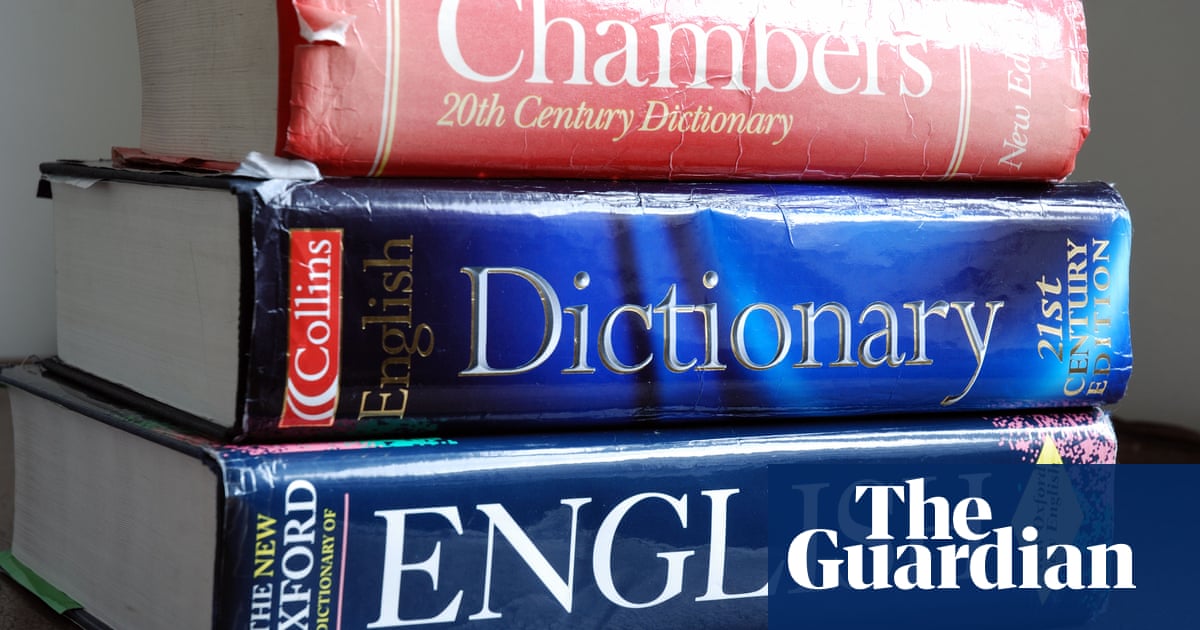The Oxford English Dictionary always seemed to me like the Rules from on high—near biblical, laid down long ago by a distant academic elite. But back in 1857, when the idea of the dictionary was born, its three founders proposed something more democratic than authoritative: a reference book that didn’t prescribe but instead described English, tracking the meaning of every word in the language across time and laying out how people were actually using each one.
As Sarah Ogilvie writes in her new book, The Dictionary People, the OED’s founders realized that such a titanic task could never be accomplished by a small circle of men in London and Oxford, so they sought out volunteers. That search expanded when the eccentric philologist James Murray took the helm in 1879 as the Dictionary’s third editor. Murray cast a far wider net than his predecessors had, circulating a call for contributors to newspapers, universities, and clubs around the globe. He instructed people to read the books they had on hand, fill 4-by-6-inch slips of paper with quotations that showed how words were used therein, and send them to his “Scriptorium” (the iron shed behind his house where he and a devoted crew worked on the Dictionary). The wave of submissions was so overwhelming that the Royal Mail installed a red post box in front of his home in Oxford, which remains there today.
One of the greatest crowdsourcing efforts in history—“the Wikipedia of the nineteenth century,” as Ogilvie puts it—the OED would not have been possible without this army of volunteers. And yet, for years, most have remained unknown. In his exuberant 2003 history of the OED, The Meaning of Everything, Simon Winchester devoted a chapter to the Dictionary’s contributors—not just the readers who sent in slips, but the subeditors who sorted submissions chronologically and by meaning, and the specialists who advised on specific terminology or etymologies. Winchester served up small biographies of a few key figures but lamented of the group that “their legacy … remains essentially unwritten.” In The Dictionary People, Ogilvie sets out to correct the record. A former editor at the Oxford English Dictionary, Ogilvie stumbled upon Murray’s address books while passing time in the Dictionary’s archives. Upon learning that the number of volunteers wasn’t merely hundreds (as scholars long believed) but some 3,000, she became determined to track each of them down.

The resulting book is, like the Dictionary itself, a clear labor of love, both playful and doggedly researched. Ogilvie spent eight years trawling through libraries and dusty archives across the globe. She pored over the editors’ correspondence, mapped how news of the project spread across social clubs in Britain and beyond, and even recruited a handwriting expert to help determine who was behind scores of the raciest slips. She orders her history alphabetically, categorizing the keenest and quirkiest contributors into different groups—“I for Inventors,” “S for Suffragists,” “M for Murderers”—and offering bite-size biographies of dozens of figures.
Under “Q for Queers,” we meet Katharine Bradley and Edith Cooper, an aunt and niece who, in the late 1800s, became lovers and literary collaborators, publishing plays and poetry under the pen name Michael Field. (Critics gushed about Field, comparing “him” to Shakespeare.) In her spare time, Katharine sent in quotations from John Ruskin and The Iliad. We meet the owner of the world’s largest collection of erotica at the time, who is thought to have supplied sentences for words related to genitalia, bondage, and flagellation—along with spicier quotations for otherwise-innocuous entries. We encounter Karl Marx’s daughter Eleanor, whose half-baked efforts exasperated Murray, and the much more devoted William Chester Minor, a former American Army surgeon who submitted 62,720 slips from the Broadmoor Criminal Lunatic Asylum, where he was sent after murdering a man. (Dr. Minor was allowed to keep a separate cell for his books.)
What starts out as a detective story quickly evolves into an ode to the outsider. Some famous figures make appearances in The Dictionary People—the photographer Eadweard Muybridge, known for his studies of animal motion, advised on entries, including the one for gallop; and a young J. R. R. Tolkien was an editorial assistant for a year, during which time he worked on the letter W, puzzling over possible etymologies of the word walrus. But Ogilvie marvels that many of the Dictionary’s key contributors were “on the edges of academia.” They were inventors and pioneers with radical ideas; women (at a time when many were denied higher education) and other autodidacts; asylum patients and recluses. This motley crew shared a hunger to be associated with the prestigious Oxford University, to be part of a project of national importance. Perhaps this desire for belonging powered their obsessive (often unpaid) devotion to the undertaking? Perhaps, for those cast aside by society, like Dr. Minor, their involvement was redemptive? Ogilvie doesn’t linger long on their motives, preferring instead to assemble surprising bits of trivia about each figure.
The most compelling portrait is that of Murray, the Dictionary’s longest-serving editor, who emerges as the book’s protagonist. The son of a village tailor in Scotland, Murray left school at 14, eventually becoming a bank clerk and then a teacher at Mill Hill School in London. Over the years, he taught himself to read some 25 languages, including Tongan and Russian, and developed an interest in philology, writing books on Scottish dialects. In the late 1860s, he was invited to join the London Philological Society, where the idea for the OED had been born in 1857. But as a teetotaling Scot with little formal education, Murray was continually excluded from the indulgent academic establishment of Oxford. He was never made a fellow of a University college, and he wasn’t granted an honorary doctorate until 1914, the year before he died.
The OED’s progress had stalled under Murray’s predecessor, Frederick Furnivall, whose involvement with various academic clubs left him little time to actually edit (but had the benefit, Ogilvie points out, of bringing in a steady stream of contributors). Murray revived the project. For 36 years, he devoted himself to an undertaking that, he noted late in life, “should have been the work of a celibate and ascetic.” He rose by five each morning and spent the day writing letters to volunteers, sorting words into their shades of meaning, and drafting definitions. He was often spotted delivering copy to the publisher by tricycle, his long white beard trailing behind him as he pedaled wildly about town. Murray’s wife, Ada, was instrumental, managing his finances and acting as his personal secretary. Even his kids were involved: Murray brought slips to the table to discuss over lunch and recruited each of his 11 children to sort submissions. For all this, he was paid a pitiful sum, which had to cover not just his wages but those of the Scriptorium staff and the Dictionary’s expenses.
Over the years, Murray resisted calls from the publisher and reviewers to narrow the Dictionary’s scope. He was pressured to use quotations from only the “great authors,” eschew slang, and omit words deemed too scientific or vulgar or foreign. Murray refused, believing that all of the English language had a valid place in the Dictionary, just as all contributors who put in the work were welcome. As Ogilvie shows in her earlier, wonkier history of the OED, Words of the World, as an editor, Murray was particularly devoted to including foreign words that had entered into English—a stance that can be read as either inclusive or colonizing, though Ogilvie seems to lean toward the former.
Murray died in 1915, shortly after finishing the entry for twilight, and 13 years before the OED’s monumental first edition was completed. The Dictionary has continued to evolve with the world; its third edition, which Ogilvie worked on, has been in progress since 1993, and uses the editing process devised by Murray. (Recent additions include deepfake, teen idol, and textspeak.) In her final chapter, Ogilvie visits a man named Chris Collier from her hometown of Brisbane, Australia, who sent in 100,000 slips from 1975 to 2010. Collier cut quotations out of his local newspaper and pasted them directly onto slips, which arrived at the OED offices wrapped in old cornflakes packaging. “I thought to myself, imagine if I could help get one word into the dictionary,” he told Ogilvie. To his neighbors, he was the local nudist (he was known to take naked evening walks), but in certain Oxford circles he was practically famous, having supplied thousands of new words.
When you buy a book using a link on this page, we receive a commission. Thank you for supporting The Atlantic.







/cloudfront-us-east-1.images.arcpublishing.com/gray/4BOYPORD6BFLBFPVMNVV7BZ4EI.png)



